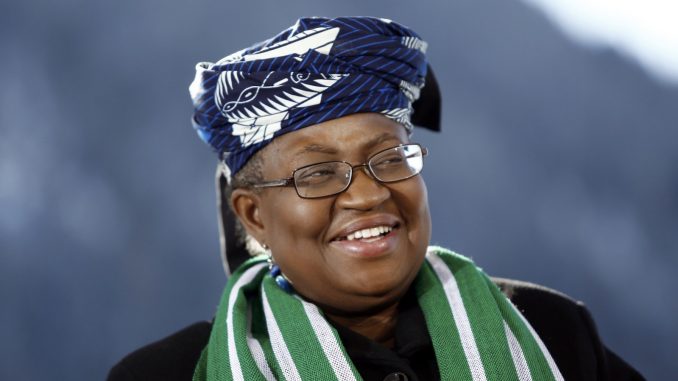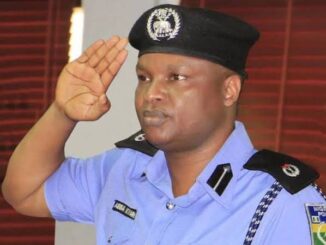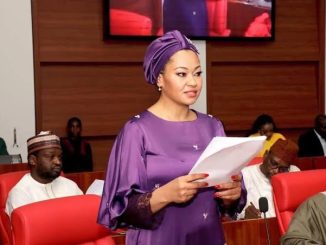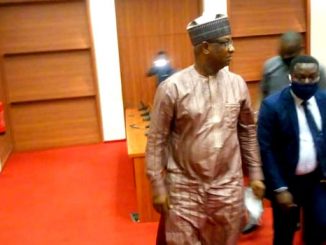
Harvard-educated and longtime World Bank economist, Ngozi Okonjo-Iweala, is bidding to become the next director-general of the World Trade (WTO) under a nomination from her native Nigeria while also holding dual U.S. citizenship.
Okonjo-Iweala obtained American citizenship in 2019, her spokeswoman told Bloomberg News, after spending most of her career at the World Bank and living in the Washington suburbs.
It’s not uncommon for international civil servants who spend long stretches working abroad to take a second citizenship, especially when their families have been living overseas with them, a spokeswoman for Okonjo-Iweala said. She’s humbled by the support of the government of Nigeria and its people, the spokeswoman said.
Okonjo-Iweala has a resumé full of qualifications, and there is no citizenship requirement for the job. Still, the revelation of her dual status may become magnified as protectionist sentiment rises around the world and national allegiances are questioned, observers of the process said.
“Unfortunately in this rather mercantilist world we live in, some members might take nationality into account,” said Stuart Harbinson, a former senior WTO official and a senior consultant on international trade for the Brussels-based Hume Brophy communications agency. “It is much more important to get the right person.”
At least two other candidates for the top WTO job disclosed multiple nationalities on their biographies posted online by the Geneva-based organization. Okonjo-Iweala’s bio doesn’t mention dual citizenship, and there’s no requirement to do so.
Job Vacancy
Former WTO Director-General Roberto Azevedo officially stepped down on Monday, and a total of eight people are vying for the position. Six men have served as director-generals since its founding in 1995. Two women — Okonjo-Iweala and Amina Mohamed of Kenya — have emerged as front-runners to succeed Azevedo.
ALSO READ: Nigerian House of Reps endorses Okonjo-Iweala for WTO Director-General
Though the Nigeria-born Okonjo-Iweala has twice served as the country’s finance minister, she spent most of her adult life working in America, after arriving in the 1970s to attend Harvard University. She lived in Potomac, Maryland, where she raised four children and worked for 25 years at the World Bank.
On Tuesday she received the endorsement of Aliko Dangote, Africa’s richest man.
In these challenging times @WTO needs the renowned skills and tested experience of Dr. Ngozi Okonjo Iweala @NOIweala to lead the organisation through identified obstacles and strengthen its position as the prime facilitator of international trade.(1/2)
— Aliko Dangote (@AlikoDangote) September 1, 2020
China has engaged in a multiyear campaign to expand its diplomatic influence and install key personnel at the top levels of international bodies like the International Telecommunication Union, the United Nations’ Food and Agriculture Organization, and the International Civil Aviation Organization.
Superpower Battle
The Trump administration has sought to blunt China’s ambitions and led a successful effort this year to displace a Chinese candidate to lead the World Intellectual Property Organization with a more western-friendly candidate from Singapore.
The U.S.-China competition for global influence isn’t isolated to the WIPO race and has already surfaced at the WTO, which the Trump administration has rendered virtually powerless to resolve trade disputes because it wants the organization overhauled.
ALSO READ: U.S. Trade Chief Lays Out His Vision to Revive the Ailing WTO
At the end of July, the Chinese delegation to the WTO opposed a U.S. proposal for an American deputy director-general, Alan Wolff, to serve as the WTO’s interim director-general until a permanent chief is selected. China was able to block Wolff’s interim bid because of the organization’s tradition of decision-making by consensus — a practice that allows any member to veto a candidate for any reason.
A spokeswoman from the Chinese mission to the WTO was not immediately available for comment.
WTO members were ultimately unable to select an interim leader to steer the organization.
To be sure, a single veto from a country is not necessarily fatal to anyone’s candidacy. While the WTO endeavors to select a candidate who is most likely to have the consensus support of its 164 members, it also provides recourse of voting as a last resort — a process involving a qualified majority that the organization hasn’t yet used in its 25-year history.




